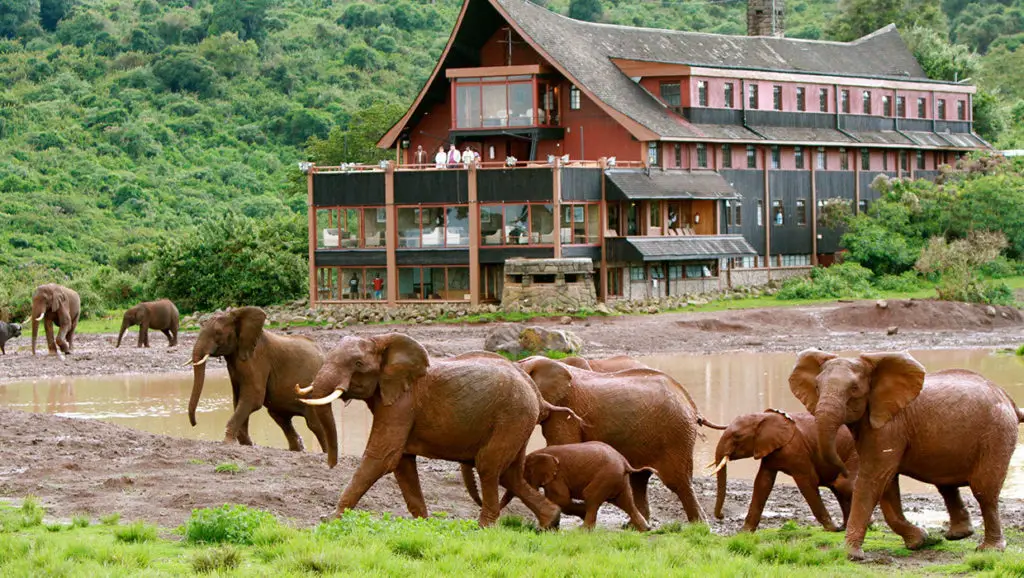Economic activities in Wajir Town, Kenya, are primarily centered around pastoralism, small-scale agriculture, trade, and emerging sectors such as renewable energy and tourism. As the capital of Wajir County, the town serves as a vital economic hub for the northeastern region of Kenya.
Despite facing challenges such as water scarcity and limited infrastructure, Wajir’s economy is gradually diversifying, with increasing investments in various sectors and a growing emphasis on sustainable development.
What is the main economic activity in Wajir?
Pastoralism remains the dominant economic activity in Wajir:
- Primary livestock: camels, goats, sheep, and cattle
- Contributes significantly to household income
- Integral part of local culture and traditions
- Provides raw materials for local industries
- Supports both domestic consumption and export markets
The livestock sector is the backbone of Wajir’s economy, employing a large portion of the population.
How significant is agriculture in Wajir’s economy?
Agriculture plays a secondary but growing role in Wajir’s economy:
- Mostly small-scale and subsistence farming
- Limited by arid climate and water scarcity
- Main crops: sorghum, millet, cowpeas, and vegetables
- Increasing focus on drought-resistant crops
- Emerging greenhouse farming techniques
While challenging, agricultural activities are diversifying and adapting to local conditions.
What types of trade occur in Wajir Town?
Trade is a crucial component of Wajir’s economy:
- Local markets for livestock and agricultural products
- Cross-border trade with Somalia and Ethiopia
- Retail shops selling consumer goods
- Wholesale distribution centers
- Growing e-commerce and mobile money transactions
Trade activities connect Wajir to regional and national economic networks.
How does the informal sector contribute to Wajir’s economy?
The informal sector plays a significant role in Wajir’s economy:
| Activity | Estimated Contribution to Local Economy |
|---|---|
| Street vending | 15-20% |
| Small-scale services | 10-15% |
| Informal transportation | 5-10% |
| Artisanal crafts | 3-5% |
| Home-based businesses | 5-8% |
This sector provides employment and income for a substantial portion of the population.
What emerging industries are growing in Wajir?
Several emerging industries are gaining traction in Wajir:
- Renewable energy (particularly solar)
- Tourism and hospitality
- ICT and mobile services
- Construction and real estate
- Financial services and microfinance
These sectors are diversifying the local economy and creating new employment opportunities.
How does the public sector contribute to Wajir’s economy?
The public sector is a significant contributor to Wajir’s economy:
- Major employer in the town
- Drives infrastructure development
- Provides essential services (health, education, security)
- Implements economic policies and regulations
- Attracts and manages development funds and projects
Government activities and employment form a substantial part of the formal economy in Wajir.
What role does livestock marketing play in Wajir’s economy?
Livestock marketing is a crucial economic activity:
- Regular livestock markets (weekly or bi-weekly)
- Attracts traders from across the region
- Facilitates price discovery and fair trade
- Supports ancillary services (veterinary, transport)
- Contributes to local government revenue through market fees
The livestock market is a key driver of economic activity and cash flow in Wajir.
How does water scarcity impact economic activities in Wajir?
Water scarcity significantly affects Wajir’s economy:
- Limits agricultural production
- Affects livestock health and productivity
- Increases production costs for businesses
- Creates opportunities for water-related businesses
- Drives innovation in water conservation and management
Addressing water scarcity is crucial for sustainable economic development in Wajir.
What financial services are available in Wajir Town?
Financial services in Wajir are expanding:
- Commercial banks (e.g., Kenya Commercial Bank, Equity Bank)
- Microfinance institutions
- Mobile money services (e.g., M-Pesa)
- Savings and Credit Cooperative Organizations (SACCOs)
- Insurance providers
These services support business growth and personal financial management in the region.
How does cross-border trade influence Wajir’s economy?
Cross-border trade significantly impacts Wajir’s economy:
| Pros | Cons |
|---|---|
| Increases product variety | Security challenges |
| Boosts local businesses | Potential for illegal trade |
| Creates employment opportunities | Competition with local producers |
| Facilitates cultural exchange | Currency fluctuation risks |
| Attracts investment in logistics | Regulatory complexities |
Managing and formalizing cross-border trade is crucial for maximizing its economic benefits.
What is the state of entrepreneurship in Wajir?
Entrepreneurship in Wajir is growing:
- Increasing number of small and medium enterprises (SMEs)
- Youth-led startups emerging in various sectors
- Government and NGO support for entrepreneurship training
- Challenges include access to capital and market linkages
- Focus on innovative solutions to local problems
Entrepreneurship is seen as a key driver for economic diversification and job creation.
How does the renewable energy sector contribute to Wajir’s economy?
The renewable energy sector, particularly solar, is gaining importance:
- Creates jobs in installation and maintenance
- Reduces energy costs for businesses and households
- Attracts investment in large-scale solar projects
- Supports other economic activities through reliable power supply
- Contributes to environmental sustainability
This sector has significant potential for growth given Wajir’s abundant sunshine.
What role does education play in Wajir’s economy?
Education significantly impacts Wajir’s economy:
- Produces skilled workforce for local industries
- Attracts educational institutions and related businesses
- Drives demand for educational supplies and services
- Facilitates knowledge transfer and innovation
- Improves overall productivity and economic potential
Investing in education is crucial for long-term economic development in Wajir.
How does the construction sector contribute to Wajir’s economy?
The construction sector is a growing contributor to Wajir’s economy:
- Driven by urbanization and infrastructure development
- Creates employment for skilled and unskilled workers
- Stimulates demand for building materials and services
- Attracts investment in real estate
- Improves overall infrastructure, supporting other economic activities
Construction activities are both a result of and a contributor to economic growth in Wajir.
What is the impact of remittances on Wajir’s economy?
Remittances play a significant role in Wajir’s economy:
| Aspect | Impact |
|---|---|
| Household Income | Supplements local earnings |
| Consumer Spending | Increases purchasing power |
| Investment | Funds small businesses and education |
| Poverty Reduction | Improves living standards |
| Foreign Exchange | Contributes to local currency stability |
Remittances from Wajir residents working in other parts of Kenya or abroad provide a crucial economic lifeline for many families.
How does tourism contribute to Wajir’s economy?
Tourism is an emerging contributor to Wajir’s economy:
- Creates employment in hospitality and tour guiding
- Stimulates local handicraft and souvenir industries
- Attracts investment in tourism infrastructure
- Promotes cultural preservation efforts
- Increases local government revenue through fees and taxes
While still developing, tourism has the potential to become a significant economic sector in Wajir.
What challenges does Wajir face in economic development?
Wajir faces several challenges in its economic development:
- Water scarcity and drought
- Limited infrastructure (roads, electricity, internet)
- Security concerns due to proximity to Somalia
- High poverty rates and income inequality
- Limited access to markets and financial services
- Climate change impacts on traditional livelihoods
- Brain drain of educated youth to larger cities
Addressing these challenges is crucial for sustainable economic growth in Wajir.
In conclusion, the economic activities in Wajir Town, Kenya, are diverse and evolving. While traditional sectors like pastoralism and small-scale agriculture remain dominant, emerging industries such as renewable energy, tourism, and ICT are gradually reshaping the local economy.
The town’s role as a regional hub for trade and administration further enhances its economic significance. Despite facing challenges such as water scarcity and limited infrastructure, Wajir’s economy shows resilience and potential for growth.
The increasing focus on entrepreneurship, education, and sustainable development practices offers promising pathways for future economic expansion. As Wajir continues to develop and diversify its economy, balancing traditional livelihoods with modern economic activities will be crucial for inclusive and sustainable growth.
The town’s unique position and resources, coupled with strategic investments and policy support, could pave the way for Wajir to become a model of economic development in Kenya’s arid and semi-arid regions.



